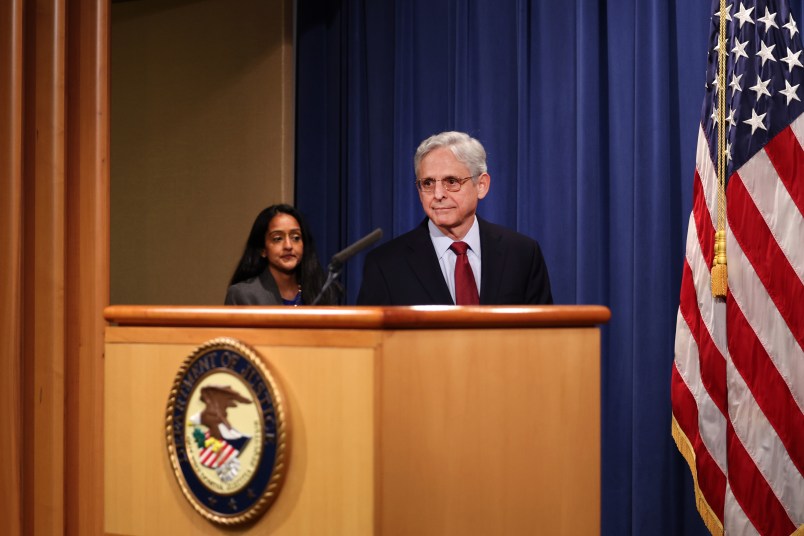The Justice Department on Thursday said it “urges Congress to enact additional legislation” to protect voting rights in light of the Supreme Court’s decision to uphold two restrictive voting laws in Arizona.
In a 6-3 ruling Thursday, the Court’s conservatives held that the Arizona laws — one requiring that ballots cast at the wrong precinct be discarded, another barring the third-party collection of ballots — were lawful, even though they resulted in a disproportionate negative impact on minority groups such as Hispanic and Native American voters.
“To the extent that minority and non-minority groups differ with respect to employment, wealth, and education, even neutral regulations, no matter how crafted, may well result in some predictable disparities in rates of voting and noncompliance with voting rules,” Justice Samuel Alito wrote for the court.
The Justice Department released a statement in response to the ruling, including a notable call for Congress to pass additional voting protections.
“The Attorney General has made clear, ‘the Department of Justice will never stop working to protect the democracy to which all Americans are entitled,'” the DOJ said. “The department remains strongly committed to challenging discriminatory election laws and will continue to use every legal tool available to protect all qualified Americans seeking to participate in the electoral process.”
“The department urges Congress to enact additional legislation to provide more effective protection for every American’s right to vote,” the statement added.
The call for additional voting rights legislation comes as Republicans block Democrats’ voting rights legislation in the Senate, and a few days after the Justice Department sued the state of Georgia over that state’s new voting restrictions.
The DOJ suit against Georgia, like the Arizona case decided Thursday, relies on Section 2 of the Voting Rights Act. However, unlike plaintiffs in the Arizona case, federal litigators argued that Georgia’s laws were enacted with a discriminatory purpose, rather than simply having a discriminatory effect.







Paging Joe Manchin. Please pickup the whites courtesy phone.
Nice to hear the DOJ talk about the J. At least some things have changed since we got rid of LowBarr.
Meanwhile, some Congresscritters are just looking for dates…
Gaetz said he and fellow Republican Reps. Majorie Taylor Greene (Ga.), Burgess Owens (Utah) and Andy Biggs (Ariz.) have been following her conservatorship battle with “deep concern” and stand with the pop star.
Emphasis added,
Alito is saying voting laws crafted to be discriminatory are neutral? FTG.
And WHAT exactly are neutral disparities when it comes to discrimination in the application of voting restrictions that affect various groups differently based upon ethnicity, race, gender, age, employment, etc?
In other words, Alito et.al. are justifying the denial of equal protection to the right to vote.